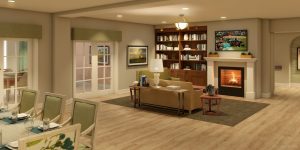
How do you celebrate 90 years of quality care, innovative programs, and dedicated leadership? By breaking new ground.
Since opening as the Jewish Home for Aged in 1929, The Cedars has set the standard for non-profit, senior care. Today, we offer independent living, assisted living, rehabilitation, skilled care and community-based programs. We mark this milestone by constructing a true home for Maine’s older adults – The Sam L. Cohen Households. This new model of care will feature age-friendly design, with a warm, person-centered experience: two households of skilled nursing care, and one household offering a new level of care, Memory Care Assisted Living. Residents of the Sam L. Cohen Households will experience a living environment that offers a quality of life previously unimaginable outside of their own homes.
The Person-Directed Life
Your loved one chooses the rhythm of their individual life, the rituals and pleasures that are part of it. They get up as they wish, eat when and what they want, bathe how they prefer, participate in activities as they choose, host family, friends and neighbors, and go outside as the spaces are designed with safety in mind. Residents partner with their physician and care staff to actively engage and participate in decisions regarding their care.
 Community to Support Quality Care
Community to Support Quality Care
The Households are centered around you and your loved one. We are deeply committed to high involvement from you, your loved one and the care staff. Each Household shapes itself and responds to the needs and direction of the residents who live there and is led by a team that balances quality of care with quality of life.
Vibrant Living
The Household Model encourages residents to continue defining who they are through meaningful and purposeful engagement. The six dimensions of wellness are supported – including spiritual, intellectual, physical, social, vocational and emotional – as well as each resident’s energies, appetites, beliefs and attitudes. Through group and individual activities and specialized programs, residents continue living vibrant lives.
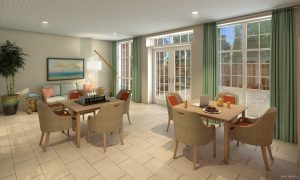
The Heart of the Home
At its core is a home environment that begins with a front door with a doorbell and features private bedrooms and bathrooms, a full kitchen that is open 24 hours a day, a living room, dining room, den, sunroom and other community spaces filled with natural light.
For more information, contact us today at 207-221-7162.

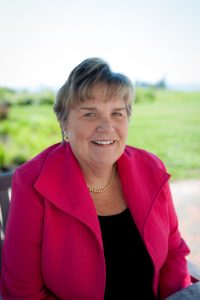 In August, 2019, Troy D. Jackson, President of the Maine Senate appointed The Cedars President and CEO,
In August, 2019, Troy D. Jackson, President of the Maine Senate appointed The Cedars President and CEO, 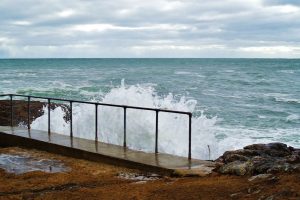 If you have a will or living trust, you have taken a major step in seeing to it that your property passes in an orderly, cost-effective way. However, these measures are only effective after you have passed away.
If you have a will or living trust, you have taken a major step in seeing to it that your property passes in an orderly, cost-effective way. However, these measures are only effective after you have passed away.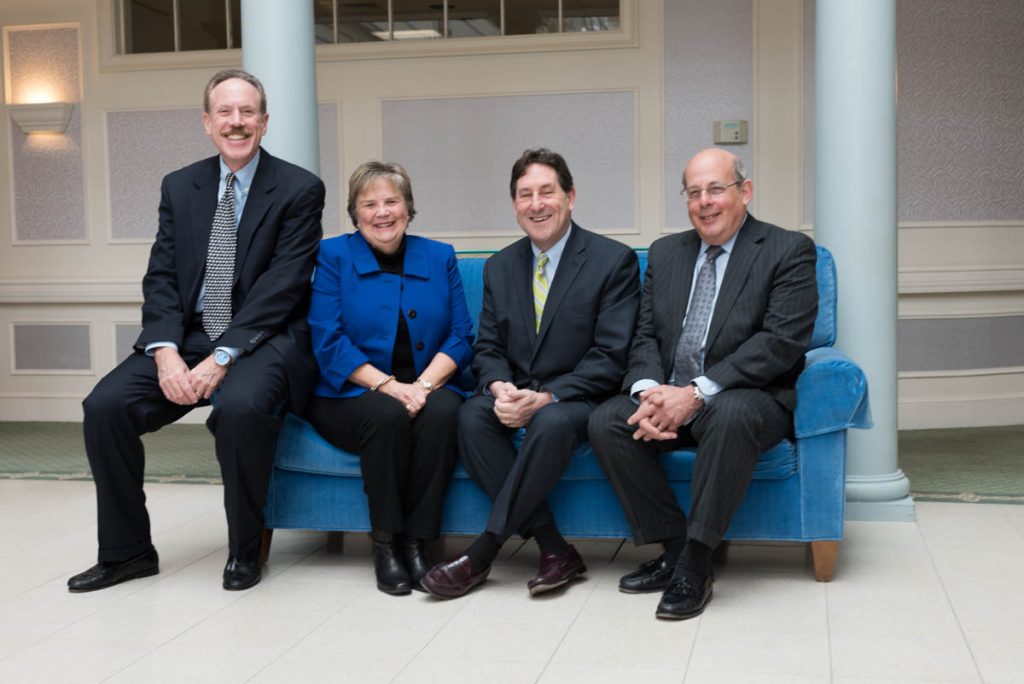

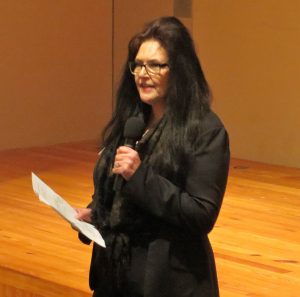 Angie Hunt, Chief Operating Officer at The Cedars was recently invited by Leading Age Missouri to share her expertise on post-acute care and value-based purchasing. On Wednesday, May 8 at the Third Annual Summit for Acute and Post-Acute Care Providers: Insights and Perspectives on Care Coordination and Value-Based Payment, Angie spoke on a panel to discuss Care Collaboration and Value-Based Care.
Angie Hunt, Chief Operating Officer at The Cedars was recently invited by Leading Age Missouri to share her expertise on post-acute care and value-based purchasing. On Wednesday, May 8 at the Third Annual Summit for Acute and Post-Acute Care Providers: Insights and Perspectives on Care Coordination and Value-Based Payment, Angie spoke on a panel to discuss Care Collaboration and Value-Based Care.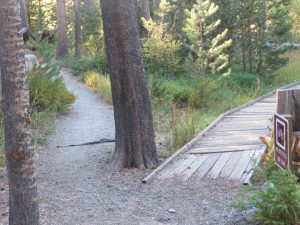 You can do more than you ever thought possible. Planning your estate allows you to both fulfill obligations and make gifts. It’s called sequential planning.
You can do more than you ever thought possible. Planning your estate allows you to both fulfill obligations and make gifts. It’s called sequential planning.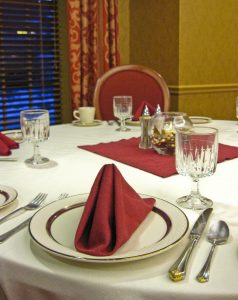
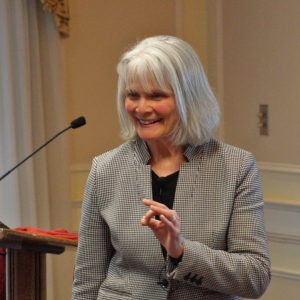 We had the opportunity to talk with Dr. Susan Wehry, Chief of Geriatric Division of Primary Care for the School of Osteopathic Medicine at University of New England prior to her presentation at The Cedars Annual Meeting on May 2.
We had the opportunity to talk with Dr. Susan Wehry, Chief of Geriatric Division of Primary Care for the School of Osteopathic Medicine at University of New England prior to her presentation at The Cedars Annual Meeting on May 2.